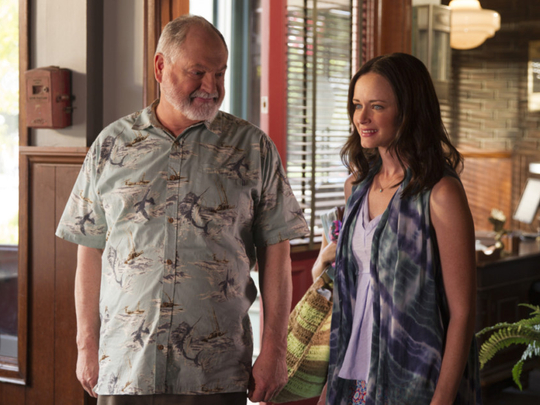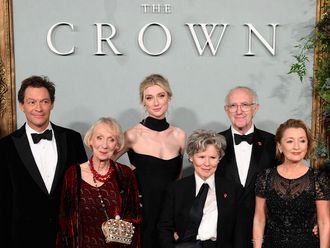
Nostalgia has swept through television and film in recent years, but our collective throwback obsession has been particularly fruitful at Netflix.
In addition to channelling past decades with Baz Luhrmann’s hip-hop saga The Get Down and the ‘80s-era phenomenon that is Stranger Things, the streaming network has revamped animated kids’ favourites such as Popples and Voltron and released a film adaptation of the beloved novel The Little Prince. Beat Bugs, another animated series, combines kid-friendly stories with songs by the Beatles. Netflix will release Gilmore Girls: A Year in the Life, a four-episode revival of the popular WB-turned-CW show Gilmore Girls, on Friday.
Of course, Netflix isn’t the first to evoke bygone eras — Nickelodeon was a pioneer of nostalgia programming, resurfacing popular teen shows such as All That and Clarissa Explains It All in 2011. But that was before the days of “peak TV” and before streaming (as opposed to, say, Netflix’s early DVD mailers) became ubiquitous. At Netflix, nostalgia’s reign is less about fitting in with pop culture trends than it is about the streaming network’s ambitious plans for original content.
“We’re looking, always, for the great stories,” said Netflix chief content officer Ted Sarandos. “We’re not setting out to find nostalgic projects, but sometimes in the hunt for great stuff, somebody has a great take on something that is hugely familiar.”
Debt offering
As reported by Variety and others, the streaming network announced recently that it is raising $1 billion (Dh3.67 billion) through a new debt offering to fund more original content. In September, Netflix reiterated its focus on original series and films. Netflix planned to release about 600 hours of original programming in 2016. Next year, the network expects to release more than 1,000 hours of original content.
Stranger Things wasn’t a traditional reboot, but it paid homage to pop culture mainstays of the late ‘70s and ‘80s, including Ridley Scott’s Alien, Rob Reiner’s 1986 film Stand By Me and ‘80s film fare from Steven Spielberg, including E.T. Similarly, The Get Down added to the nostalgia craze with an extravagant but well-researched take on the early days of hip-hop in the Bronx.
Stranger Things was a surprise summer hit, though Sarandos said the network “definitely knew we had something special” after watching the early cuts of the episodes. According to research released by Netflix in September, most people who became big enough fans to watch all 10 episodes of the sci-fi thriller did so after finishing the second instalment.
Sarandos said Stranger Things is popular on a global scale, although that’s difficult to quantify because Netflix doesn’t share ratings information. Sarandos said the company knows viewing numbers “with incredible granularity,” but it doesn’t consider viewership the best measure of success because it doesn’t sell advertising. Instead, the company focuses on subscriber growth, which is on an upswing.
Traditional reboots
Anecdotally, Sarandos points to the immense social media following that Stranger Things and the members of its largely unknown cast earned after the premiere in August as evidence of the show’s dedicated fan base. “There’s no question when something is working in America or anywhere else in the world because everyone is talking about it,” Sarandos said.
When it comes to more traditional reboots, Netflix has arguably been more discerning than other networks about which shows are revived. Full House and Gilmore Girls both have multigenerational fan bases (the result of longtime syndication and treasured DVD box sets) that make the idea of continuing those stories appealing.
And Netflix isn’t just remaking these series the way that, say, CBS did with its short-lived Rush Hour reboot — Fuller House and the Gilmore Girls miniseries are essentially sequels. (Not that the broadcast networks haven’t succeeded, at times, with the remake format — MacGyver has done well on Friday night for CBS, Lethal Weapon has held its own in the ratings despite mixed reviews, and The Exorcist, which isn’t a ratings hit, is surprisingly worth watching if you’re a fan of the horror genre.)
Sarandos credits the easy availability of old movies and shows with enabling younger audiences to find familiar references in Stranger Things and The Get Down. “It’s all in the rich details that you think would be completely lost on the young audience,” he said, using the rotary phones in Stranger Things as an example.
“My 20-year-old son never said ‘What’s that?’ because he’s so used to seeing it [on] film and television,” Sarandos said. “It’s almost like life and art just happen on a constant continuum now and are played out through television.”













